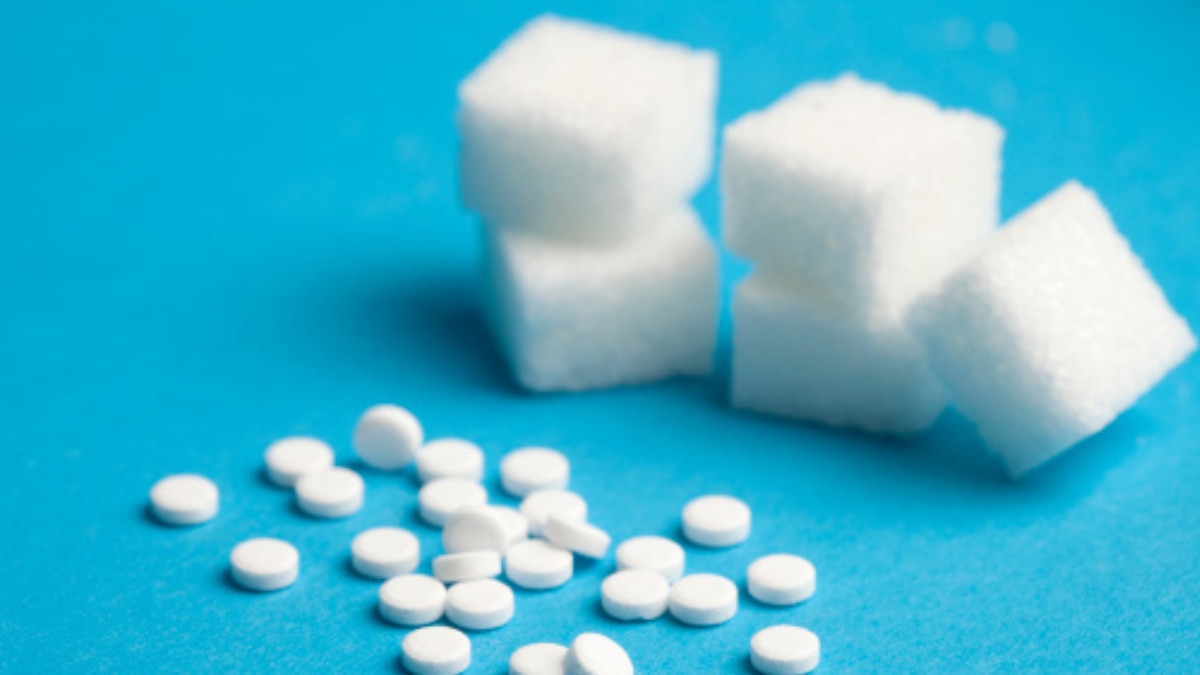A few days back, there was a tragic incident in Punjab when a 10-year-old girl, Manvi, passed away due to suspected food poisoning after consuming a cake during her birthday celebration. Reportedly, the entire family, including her younger sister, fell ill after having in the cake, which was ordered online from a local bakery in Patiala. As per a report by India Today, District Health Officer, Dr Vijay Jindal said that four samples of cake were taken from the bakery out of which two of them were found to contain high levels of saccharin, which is an artificial sweetener. While saccharin is commonly used as a sugar substitute, high quantities of the substance can cause an upset stomach.
ALSO READ: Punjab: 10 Year-Old Girl Dies After Eating Cake Ordered Online, FIR Registered Against Bakery Owner
Can Artificial Sweetener In Food Lead To Various Health Problems?
Saccharin is one of the earliest artificial sweeteners in the market, having served to sweeten foods and beverages for over a century. However, its widespread adoption as a sugar substitute didn't occur until the 1960s and 1970s. Some argue that substituting sugar with saccharin can aid in weight loss, diabetes management, and dental health, while others remain skeptical surrounding the safety of all artificial sweeteners, including saccharin.
Dr Sarbajit Ray who is a Consultant Physician at ILS Hospital, Salt Lake said, "Artificial food sweeteners or sugar substitutes are technically known as Non Nutritive Sweeteners, out of which the common ones are Saccharin and Aspartame. Many of us use sugar substitutes as a panache to cut down on calorie intake. But these artificial sweeteners have their inherent drawbacks."
"Artificial sweeteners pose health hazards ranging from weight gain to cancer. They are highly deleterious to people suffering from Phenylketonuria (PKU). These are also known to cause weight gain, exacerbation of migraine and increased risk for heart attack and stroke. These artificial agents are also notorious for disruption of the normal gut microbiome, resulting in bloating, auto immune conditions, thinning of intestine walls, irritable bowel syndrome (IBS) etc. Epilepsy is also precipitated as they are known to lower the seizure threshold."
Apart from these, Dr M S Purakait, Medical Superintendent, Techno India Dama Hospital mentioned some other side effects due to excessive ingestion of artificial sweeteners.
He said, "It can cause vomiting,abdominal pain, diarrhoea, fever and fatigue leading to sudden collapse and shock. It can also cause serious consequences in patients suffering from certain genetic deficiencies. Long term use of artificial sweeteners can lead to insulin resistance, metabolic syndrome and its complications."
Talking about the Punjab girl case, Dr Sarbajit Ray said, "Now, with all these known side effects, the child could be a victim to any acute reaction specially if the artificial sweetener was used in more than the maximum daily permissible limit."
What Quantity Of Artificial Sweetener Can Be Ingested Per Day And By Whom:
Artificial sweeteners represent the sweetness of sugar but contain neither calories nor carbohydrates.
Dr.Debarghya Dey, who is a General physician and diabetologist said, "There have been several studies on Non Nutritive Sweeteners' safety showing that everyone over the age of one, including children, pregnant women, and breastfeeding mothers can ingest NNS. Aspartame should be avoided in patients with phenylketonuria(PKU)."
"Average daily intake (ADI) is an estimate of the amount of food additive that can be ingested over a lifetime without appreciable health risk. For Aspartame it is 40 mg/kg/day, for Sucralose it is 15mg/kg/day. NNS needs much more scientific research and evaluation to understand individual information, risks of cerebrovascular , cardiovascular disease and cancer," he added.
[Disclaimer: The information provided in the article, including treatment suggestions shared by doctors, is intended for general informational purposes only. It is not a substitute for professional medical advice, diagnosis, or treatment. Always seek the advice of your physician or other qualified healthcare provider with any questions you may have regarding a medical condition.]


